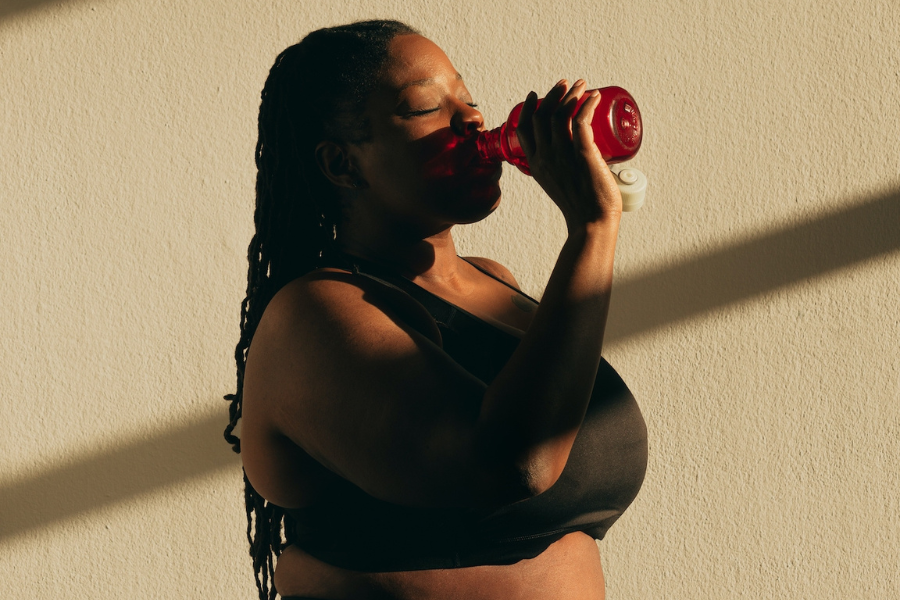Why You Need a Hair Professional: Benefits of Expert Care for Healthy Hair

We often hear the phrase, "hair is a woman's crowning glory," but regardless of gender, everyone wants their locks to be lustrous and healthy. Our hair is not just an aesthetic feature; it's a reflection of our overall well-being, influencing our confidence and how we present ourselves to the world. In an age where instant gratification is sought after, and the DIY hair treatment trend is on the rise (thanks to social media and countless online tutorials), the true value of professional care cannot be emphasized enough. As the lockdowns in 2020 taught us, hair care is best left to the professionals who continuously study the craft to keep hair looking and feeling its best. Disagree? Let's talk about it…
Hair is a complex structure comprising the outer layer (cuticle), the middle layer (cortex), and the innermost layer (medulla). While it may seem like just strands growing from our scalp, it's prone to various kinds of damage—be it from physical stress, chemical stress, or environmental stress. Professionals don't just style hair; they work to prevent and repair damage, ensuring your tresses remain vibrant and strong beyond your salon visit.
And we get it. There are a few reasons why some might skip the salon chair:
- Cost Concerns: Salon services can sometimes be perceived as pricey. However, think of it as an investment in your hair's health. You are paying for the convenience of healthy hair and the best products. Professional hair care products tend to perform far better than the products available to the general public due to their concentration of active ingredients and specific dosages, so keep in mind you are also paying for quality of care. Similar to how a prescription from your doctor is required for stronger medicine.
- Time Constraints: We lead busy lives, and dedicating hours at a salon can seem daunting. Yet, professionals often employ techniques and use concentrated products that ensure long-lasting results, making frequent touch-ups unnecessary. For instance, if you insist on trimming your hair at home, unless you use professional-grade shears your ends will begin splitting again almost immediately. While something as simple as a bond builder treatment at the salon can help preserve your ends and prevent them from splitting in the first place.
- Fear of Bad Outcomes: A past bad haircut or color job can scar us, making us wary of revisiting salons. Remember, a well-trained professional understands hair better than most and works to achieve your desired look. To avoid bad outcomes, utilize social media to find stylists who know how to accomplish looks you love. And don't hesitate to communicate specifics to your stylist so they know what you are expecting.
- Overestimating DIY Skills: The digital age, characterized by easy access to information and the proliferation of online tutorials, has empowered many to explore the DIY route. With just a few clicks, we can find videos on almost any topic, leading many to believe that mastering a skill is just a tutorial away. However, this sense of instant expertise can be misleading. A 10-minute video might provide an overview or introduce a technique, but it can't encapsulate the depth and breadth of knowledge that professionals acquire over years of hands-on training and experience. Hair care, in particular, involves understanding diverse hair types, recognizing potential problems, and knowing the intricacies of various treatments. It's not just about following steps; it's about adapting to each individual's unique needs, something that only a trained eye and seasoned hands can truly offer.
The Risks of DIY Hair Treatments with Harsh Chemicals
Hair Coloring:
Hair coloring is an intricate process that requires more than just an artistic eye; it demands a detailed understanding of chemistry and biology. When you choose a color, you're not simply selecting a shade that suits your skin tone or current fashion trends. You're choosing a chemical solution that will interact with your hair's unique biology.
Hair is made up of keratin proteins, and embedded within the structure of these proteins are natural pigments that give hair its color. Hair dyes work by penetrating the hair shaft to either deposit or alter these pigments. Depending on the type of dye—temporary, semi-permanent, demi-permanent, or permanent—these changes can last for varying durations and can be more or less drastic. Each type uses a different combination of chemicals to achieve its effects, and without a deep understanding of these mechanisms, it's easy to misuse them. One wrong move or incorrect formulation can result in not only undesired shades but also potential damage to the hair's structural integrity. Don't believe us? Just ask anyone who has attempted to perm and bleach their hair on the same day.
Common Mistakes & Consequences:
The pitfalls of DIY hair coloring are numerous. A common mistake is uneven application, leading to blotchy, inconsistent results. Using a developer that's too strong can lead to hair breakage, while leaving a product on for too long can result in over-processing, leaving hair dry, brittle, and damaged. Additionally, without a patch test, individuals risk severe allergic reactions, with symptoms ranging from itchy scalp to, in extreme cases, swelling or burns.
The Hidden Costs:
When a DIY hair coloring goes awry, the immediate thought might be to try and correct it—often leading to further damage. Seeking professional help to rectify these mistakes often costs more than if one had opted for a salon service in the first place. Beyond the financial burden, there's the emotional toll. Hair mishaps can greatly affect one's self-esteem, leading to stress and anxiety. Plus, the time spent trying to repair damaged hair, both in terms of daily care and additional salon visits, is another unanticipated cost.
The Benefits of Trusting a Licensed Professional
Hair professionals aren't just about scissors and curling irons. Their arsenal is made up of knowledge, skills, and an understanding of individual hair needs. Professionals undergo rigorous training and are updated with the latest in hair care, ensuring you get the best treatment possible. And after styling countless people throughout their careers, they recognize more than most that no two heads are the same. Professionals assess and recommend treatments tailored to your specific hair type and concerns.
Believing that a few hours of research can replace years of professional experience is a perilous misconception. Misjudging product mixtures, application times, or misinterpreting minor reactions can lead to severe consequences, from chemical burns to long-lasting damage.
Safety in hair treatments isn't just about following instructions on a bottle; it's about understanding the underlying science and recognizing potential risks. And while consumers can certainly educate themselves to some extent, trusting professionals—who have dedicated their careers to mastering this craft—ensures that safety is never compromised.
So, while it's tempting to take matters into our own hands, especially with the illusion of simplicity that internet tutorials provide, our hair deserves expert care. Prioritize its health and longevity over short-term savings or fleeting trends. Nourish. Treat. Care.
Ready to give your hair the professional care it deserves? Book an appointment with a trusted salon near you and witness the transformative power of expert hands on your hair wellness journey.



